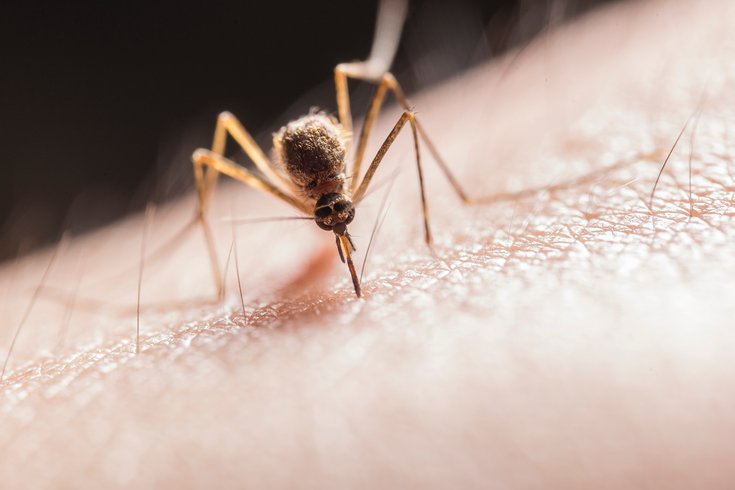
June 17, 2022
 JIMMY CHAN/PEXELS
JIMMY CHAN/PEXELS
Philadelphia reported its first case of West Nile on Friday. The Department of Public Health is advising residents to take precautions and follow mosquito bite prevention tips this summer.
For the first time this year, public health officials in Philadelphia have identified mosquitoes that are carrying West Nile virus. The virus also has been found in Montgomery, Bucks and Cumberland counties, as well as Camden County, New Jersey.
There have not yet been any West Nile virus cases found among people in the region, but officials are advising the public to take precautions and follow helpful prevention tips.
The infectious disease, spread to humans by mosquito bites, was first detected in the United States in 1999 and has periodically led to spikes in cases among people — including peak seasons in 2003, 2010 and 2018.
Most People who get bitten by infected mosquitoes do not develop any symptoms, but about one in five people will develop neurologic and flu-like symptoms that can range from headaches and body aches to fever, vomiting, diarrhea or a rash.
In more serious cases, the virus can cause inflammation of the brain or spinal cord that can lead to death. This is relatively rare, affecting about one in 150 people who are infected, but people ages 50 and older have a comparatively higher risk for severe disease, death or permanent disabilities.
In 2021, there were 10 documented cases of West Nile virus in Philadelphia. Since 2001, that number has fluctuated between zero and 24 cases annually, officials said.
The most important step people can take to lower the risk of infection is to prevent mosquitoes from breeding on their properties, particularly by getting rid of standing water after it rains. Public health officials recommend the following tips:
•Anything that can hold water can breed mosquitoes, from soda bottle caps to discarded tires. Check your property for these sources of standing water and dump them out.
•At least once or twice a week, empty water from flowerpots, pet food and water dishes, birdbaths, swimming pool covers, buckets, barrels, cans, and any other items outside your home.
•Empty and store wading pools for kids on their side.
•Check for clogged rain gutters and clean them out.
•Remove unused tires, and other items that could collect water.
•Be sure to check for containers or trash in places that may be hard to see, such as under bushes or under your home.
•Keep well-fitted screens on both windows and doors.
•Call the Health Department’s Mosquito Complaint hotline at 215-685-9000 to report mosquito problems in your neighborhood.
In the summer months when mosquito populations peak, it's also wise to take other steps to prevent bites.
•Wear insect repellent on exposed skin when outdoors. The insect repellant should contain one of the following ingredients: DEET, Picardin, Oil of Lemon Eucalyptus, or PMD.
•When weather permits, wear long-sleeved shirts and long pants whenever you are outdoors.
•Consider staying indoors at dawn, dusk, and in the early evening when some mosquitoes are most active.
•Close windows overnight and repair window screens that have holes in them.
Since the discovery of West Nile virus in the United States, about 2,400 people have died from the disease. Experts have warned that 2022 could have a longer mosquito season due to warmer temperatures and more rainfall in many parts of the country.
Philadelphia residents and people across the region are urged to do their part to avoid enabling breeding grounds for mosquitoes in the months ahead, and to take the precautions above to prevent West Nile virus infections and other diseases that can be spread by mosquito bites.